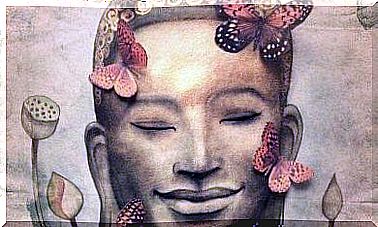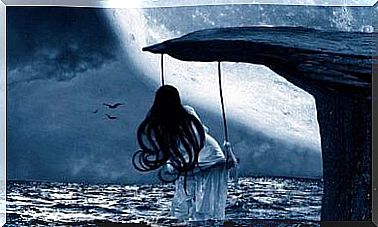What Is The Difference Between Anxiety And Stress?

Anxiety and stress are two very similar conditions, but they differ in some fundamental ways. Generally the two terms are used interchangeably, but they are not. Knowing how to recognize both conditions is not a simple theoretical exercise. In practice, it helps us to define more precisely the intensity or severity of these ailments.
Adding to the difficulty of establishing the differences between anxiety and stress is the fact that there are different types of stress and anxiety. Sometimes the classification starts with the intensity of the symptoms. For example, we talk about chronic stress or generalized anxiety . Other times, however, the various categories of malaise are established based on the source or the triggering factor. For example, work stress or abandonment anxiety .
However, there are elements common to all forms of stress and the same goes for anxiety. To clarify all of this, let’s now see the main differences between stress and anxiety.
The causes of stress and anxiety are different
In the case of stress, the triggering cause is easily identifiable. It occurs when a person faces a certain situation but does not have, or does not believe they have, the resources to do so. The same is true when he has to perform an activity or any other task.

Anxiety, on the other hand, has a more widespread origin. The threat or danger is often not identifiable. In fact, in many cases, there is no objective reason that explains this state of restlessness, however it is felt anyway. On the other hand, anxiety is very sensitive to conditioning and anticipation and can be a consequence of stress (pressure).
The emotions that predominate
Another element that distinguishes stress from anxiety concerns the predominant emotions or feelings. In the case of stress, worry is especially common. It can be defined as a state where nervousness and frustration are mixed. It can include irritability and sometimes even sadness.
In the case of anxiety, fear is the predominant emotion. It is a feeling of imminent danger that tends to grow like a snowball which then becomes an avalanche. It is an invasive emotion that extends and persists, generating great malaise in the mood. Fear leads to perplexity and, in more serious cases, to a real block or paralysis.
The triggers
In general, stress depends on external factors, while anxiety depends on internal factors. It is not always easy to distinguish one from the other. What makes the difference is the presence of a stimulus extraneous to the individual or not depending on the case.
Stress occurs in the presence of specific facts or situations concerning the environment in which one lives. It can be work, a particular activity, moving to a certain place, etc. Anxiety, on the other hand, depends on the person experiencing it, who creates and feeds catastrophic thoughts and distressing feelings, regardless of the surrounding environment.
The perception of time
They say that stress is an excess of the present, while anxiety is an excess of the future. For those under stress, the present seems endless. He believes he cannot get out of the situation in which he feels trapped. He doesn’t see a way to change what’s bothering him. He feels as if he is doomed to suffer the impact of a certain stimulus.

In the case of anxiety, the person is afraid of what might happen, but that didn’t happen. This may also have occurred, but the person in question has no power of control. Many times he doesn’t even know what it is. It simply anticipates all possible negative or catastrophic things. The anxious person is unable to be objective towards the present because he lives according to something “terrible” that will happen or has happened and fantasizes about the consequences without the possibility of intervention.
The disappearance of symptoms
If what is causing a person stress is a visit to the dentist, once done, the restlessness will disappear. This is a distinctive feature of stress: it disappears when the stimulus fails, the conflict situation is overcome or the difficulty is resolved.
Anxiety, on the other hand, tends to persist. Going back to the example given above, if an anxious person goes to the dentist, their fear does not disappear once the visit is over. Imagine that you may be losing all your teeth or that your problem is just a symptom of a much more serious disease that is beginning to develop. Anxiety feeds on an exaggerated and negative imagination.

Ultimately, knowing the similarities and differences between anxiety and stress is a way to better identify the problem or malaise that really afflicts you. If the stress lasts for a long time, it would be ideal to ask for help, because it means that you cannot resolve a conflict situation that is hurting you. It is also advisable to consult a specialist if you believe you suffer from anxiety, a fear that seems to have no head or tail.









